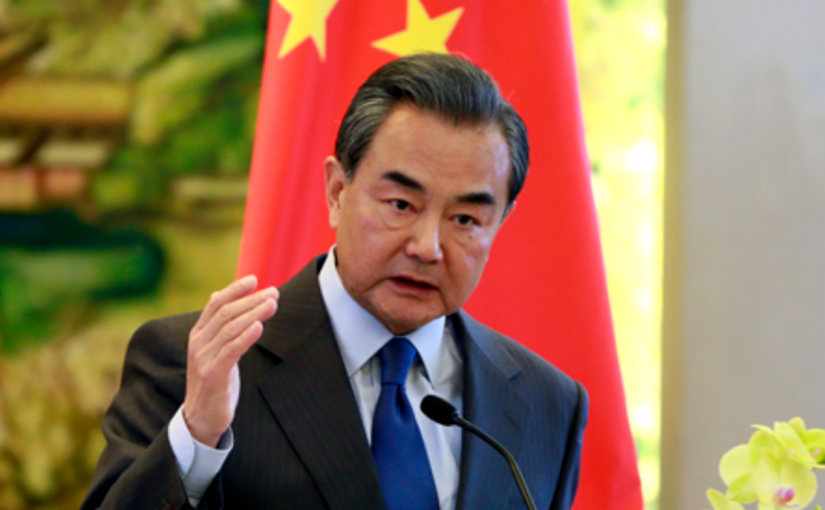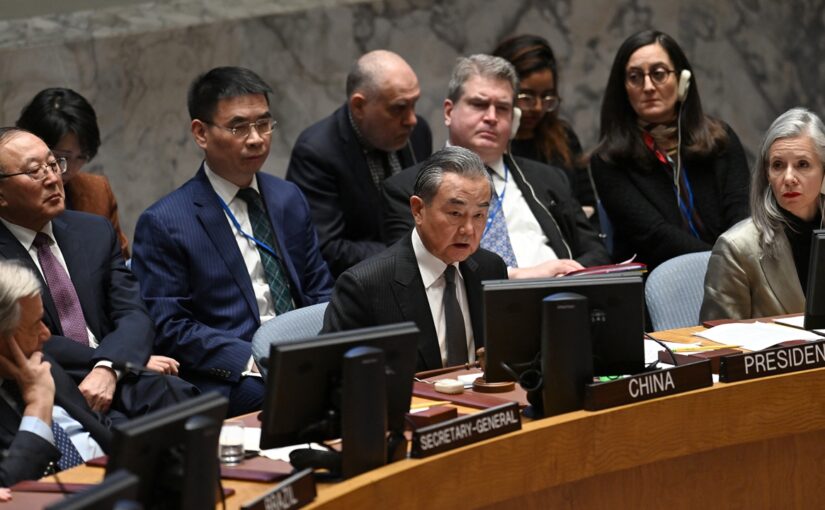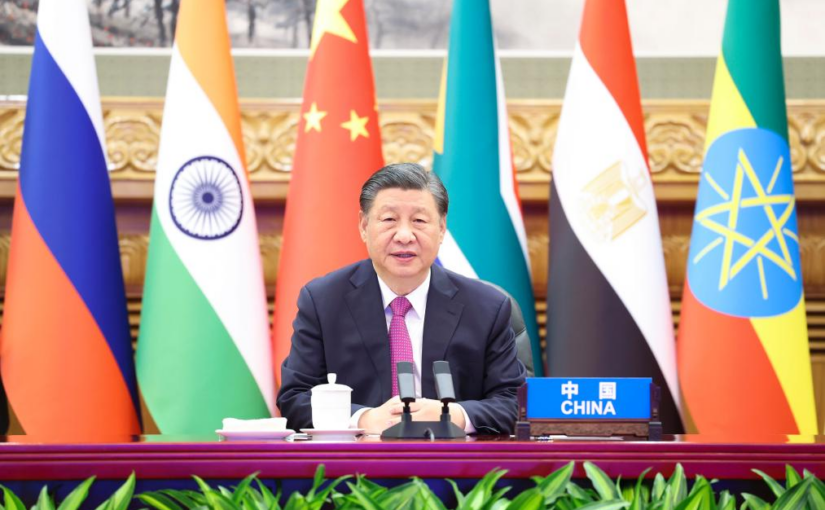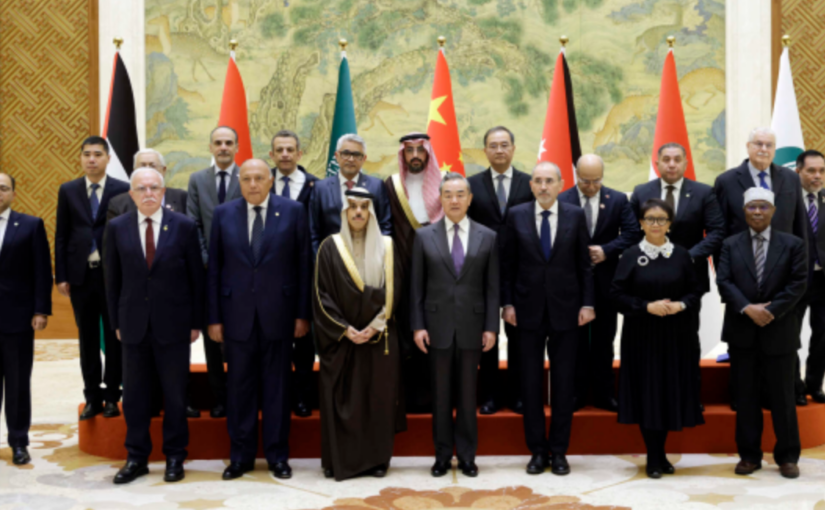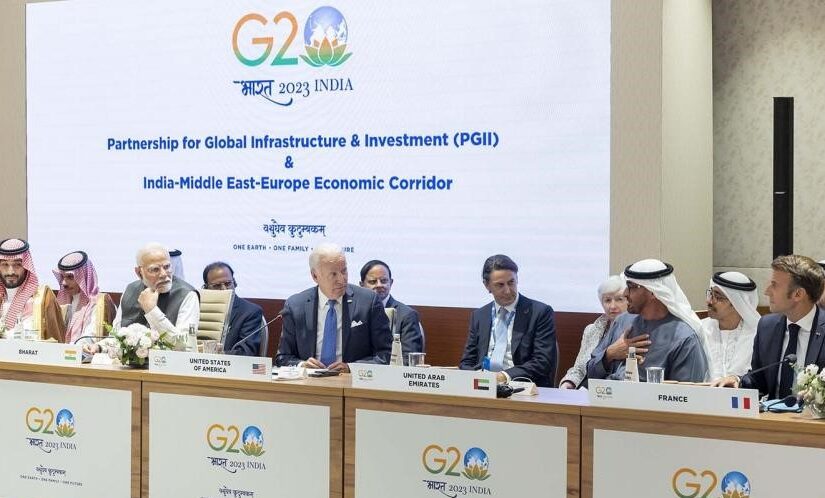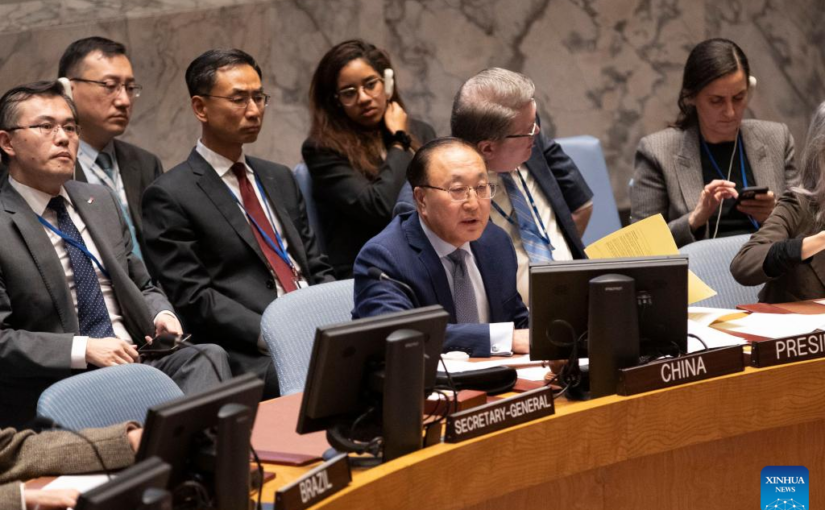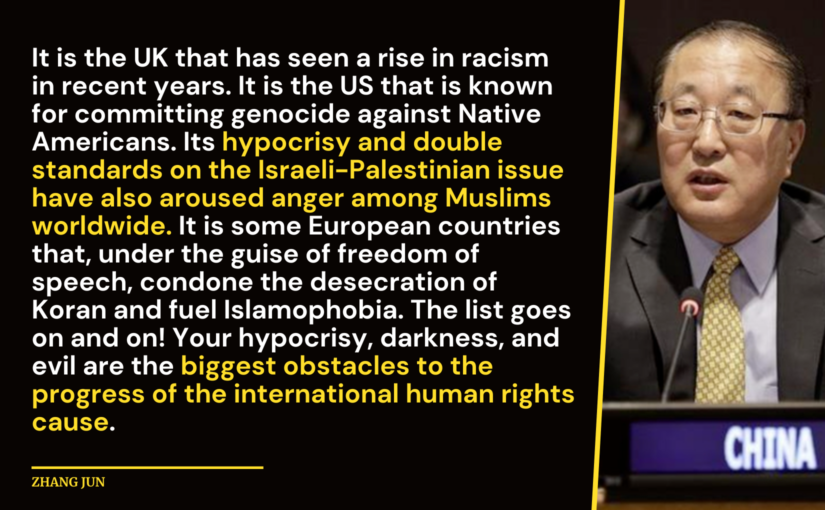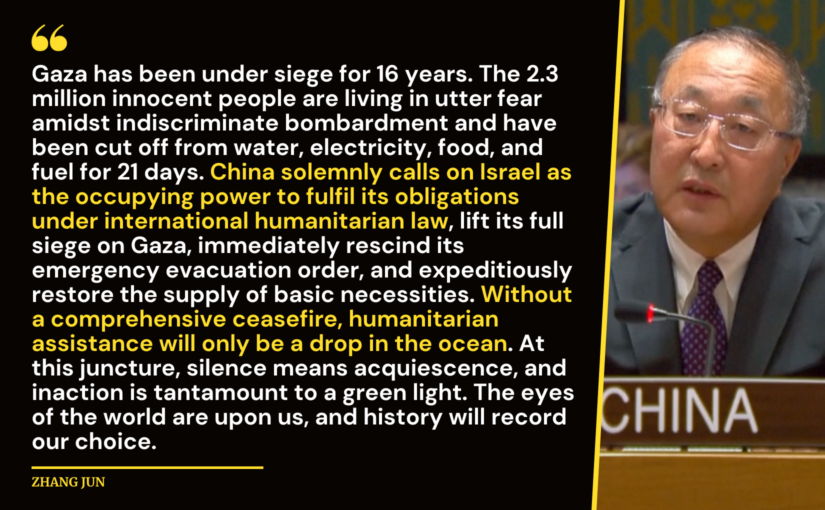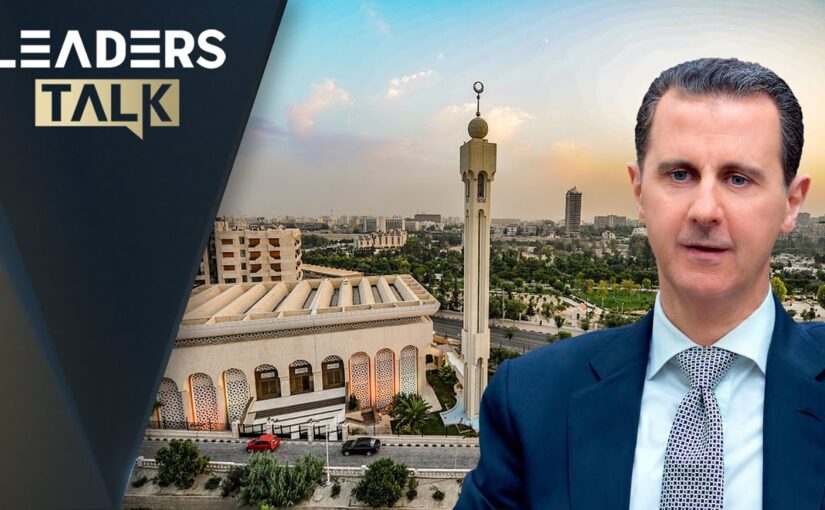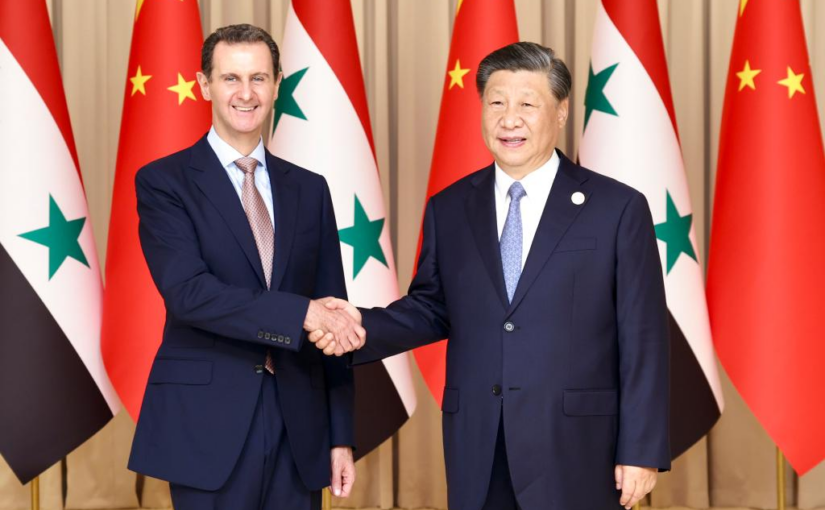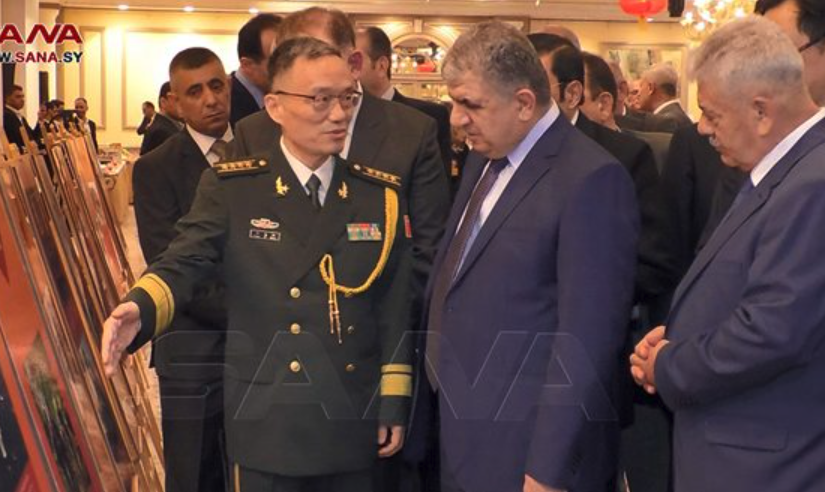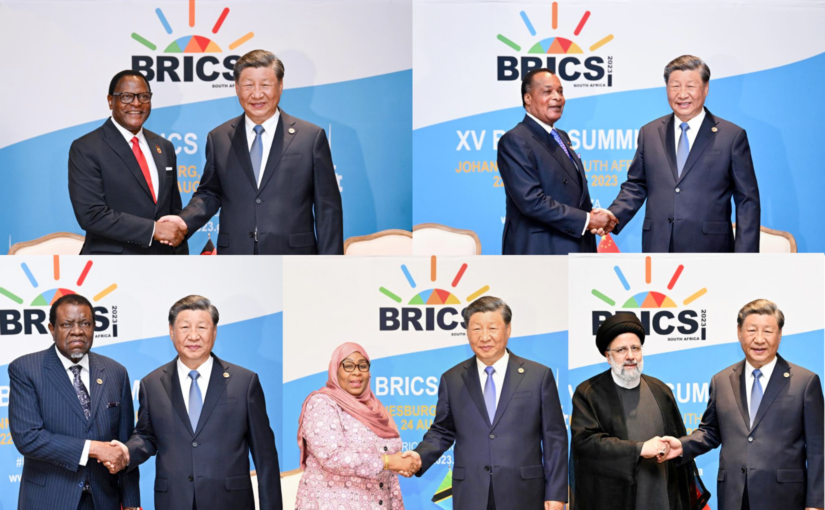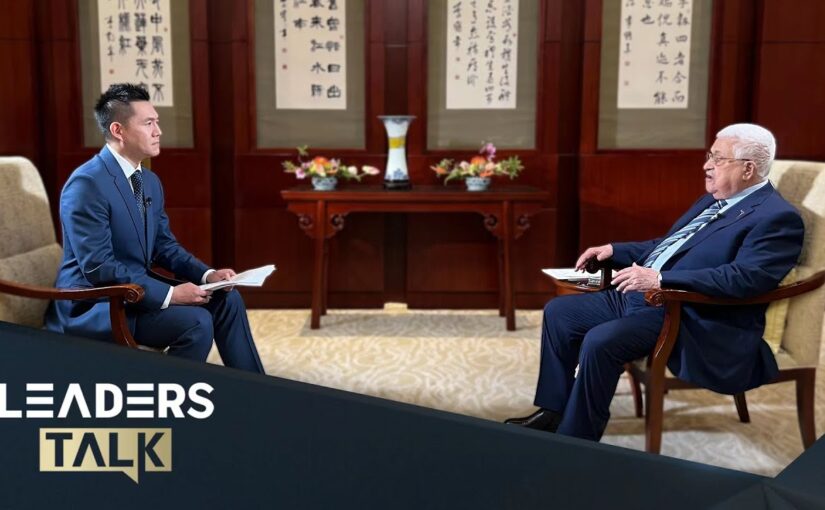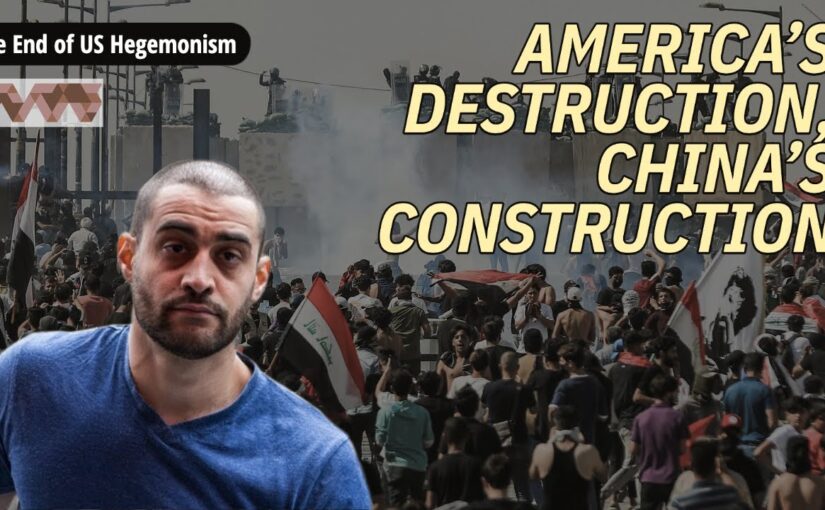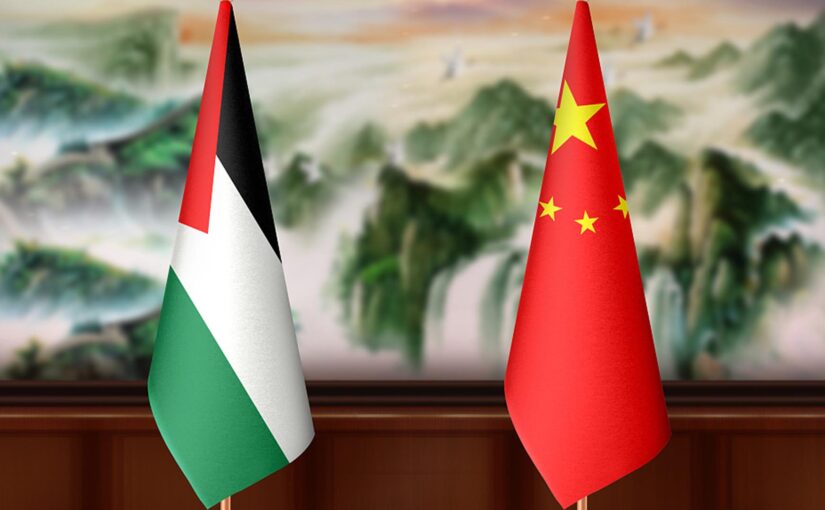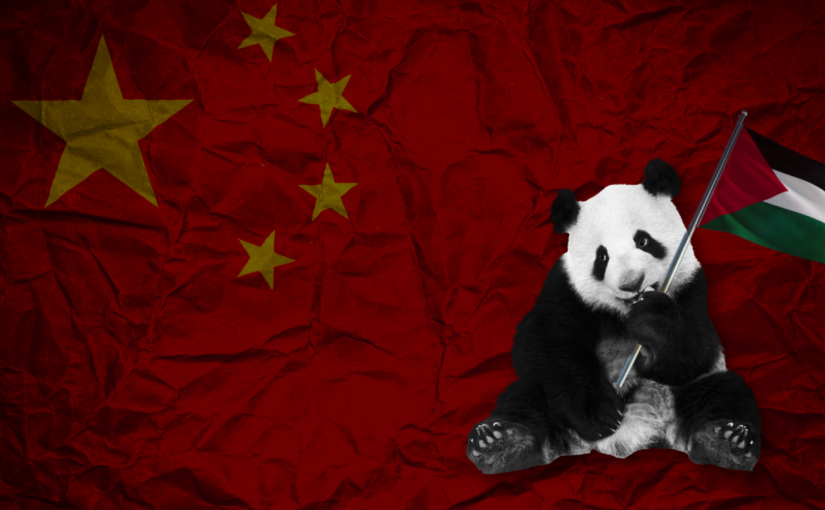China has recently intensified its diplomatic engagement with Iran, not least in the context of Israel’s genocidal war of aggression against the people of Gaza.
As part of that process, China’s top diplomat, Foreign Minister Wang Yi exchanged views on the situation in Gaza, as well as on bilateral relations, in a December 11 phone conversation with his Iranian counterpart Foreign Minister Hossein Amir-Abdollahian.
Wang said that China’s position on the Palestinian-Israeli conflict can be summarised as realising a ceasefire and ending the conflict as soon as possible, ensuring humanitarian relief, and returning to the two-state solution.
Amir-Abdollahian highly appreciated China’s efforts to achieve a humanitarian ceasefire in Gaza during its rotating presidency of the UN Security Council last month. He said the Iranian side opposes the killing of women and children and advocates an immediate ceasefire and cessation of fighting in Gaza and opening humanitarian relief corridors.
Iran, he added, supports the Global Security Initiative proposed by China and expects China to be more actively committed to easing the situation in Gaza, resolving the Palestinian question, and safeguarding regional peace and stability.
Wang said China’s position is consistent with that of Arab countries and is highly congruous with that of Islamic countries and the international community. Countries should raise a stronger voice and form a more unified position on the conflict.
China, the foreign minister underlined, believes that any arrangement concerning the future and destiny of Palestine should fully reflect the will of the Palestinian people, fully respect their right to statehood and self-determination, and embody the principle of “Palestinian-owned, Palestinian-led and Palestinian-administered.”
He also said that China supports Iran and Saudi Arabia in continuously improving relations, promoting the unity and cooperation of countries in the region and taking regional peace and security in their own hands.
Amir-Abdollahian thanked China for its contribution to mediating the rapprochement between Iran and Saudi Arabia, saying that Iran is willing to strengthen cooperation with China in various fields and promote the continuous development of Iran-China relations.
The following article was originally published by the Xinhua News Agency.
BEIJING, Dec. 12 (Xinhua) — Chinese Foreign Minister Wang Yi and Iranian Foreign Minister Hossein Amir-Abdollahian exchanged views on the situation in the Gaza Strip and bilateral relations during a phone conversation on Monday.
Wang, also a member of the Political Bureau of the Communist Party of China Central Committee, said China’s position on the Palestinian-Israeli conflict can be summarized as realizing a cease-fire and ending the conflict as soon as possible, ensuring humanitarian relief, and returning to the two-state solution.
Amir-Abdollahian highly appreciated China’s efforts to achieve a humanitarian cease-fire in Gaza during its rotating presidency of the UN Security Council.
He said the Iranian side opposes the killing of women and children and advocates an immediate cease-fire and cessation of fighting in Gaza and opening humanitarian relief corridors.
The United Nations should play an important role in the future settlement of the Palestinian question, he said, adding that Iran is willing to maintain close communication with regional countries to safeguard regional security and stability.
The Iranian side supports the Global Security Initiative proposed by China and expects China to be more actively committed to easing the situation in Gaza, resolving the Palestinian question, and safeguarding regional peace and stability, the top Iranian diplomat said.
Wang said China’s position is consistent with that of Arab countries and is highly congruous with that of Islamic countries and the international community.
Countries should make a stronger voice and form a more unified position on the conflict, Wang said.
China believes that any arrangement concerning the future and destiny of Palestine should fully reflect the will of the Palestinian people, fully respect their right to statehood and self-determination, and embody the principle of “Palestinian-owned, Palestinian-led and Palestinian-administered,” he said.
China is ready to strengthen communication and coordination with Arab and Islamic countries to gradually create conditions for returning to the two-state solution and continue to play a role in truly resolving the Palestinian question, he said.
On bilateral ties, Wang said China stands ready to work with Iran to implement the important consensus reached by Chinese President Xi Jinping and Iranian President Ebrahim Raisi during their two meetings this year.
He said China will strengthen communication, consolidate mutual trust, expand cooperation, coordinate and cooperate with Iran on international and multilateral occasions, practice genuine multilateralism, safeguard the legitimate rights and interests of the two countries and developing countries as well as international equity and justice, and push forward the stable and long-term development of China-Iran relations.
China supports Iran and Saudi Arabia in continuously improving relations, promoting the unity and cooperation of countries in the region and taking regional peace and security in their own hands, Wang said.
Amir-Abdollahian thanked China for its contribution to mediating the rapprochement between Iran and Saudi Arabia, saying that Iran is willing to strengthen cooperation with China in various fields and promote the continuous development of Iran-China relations.
